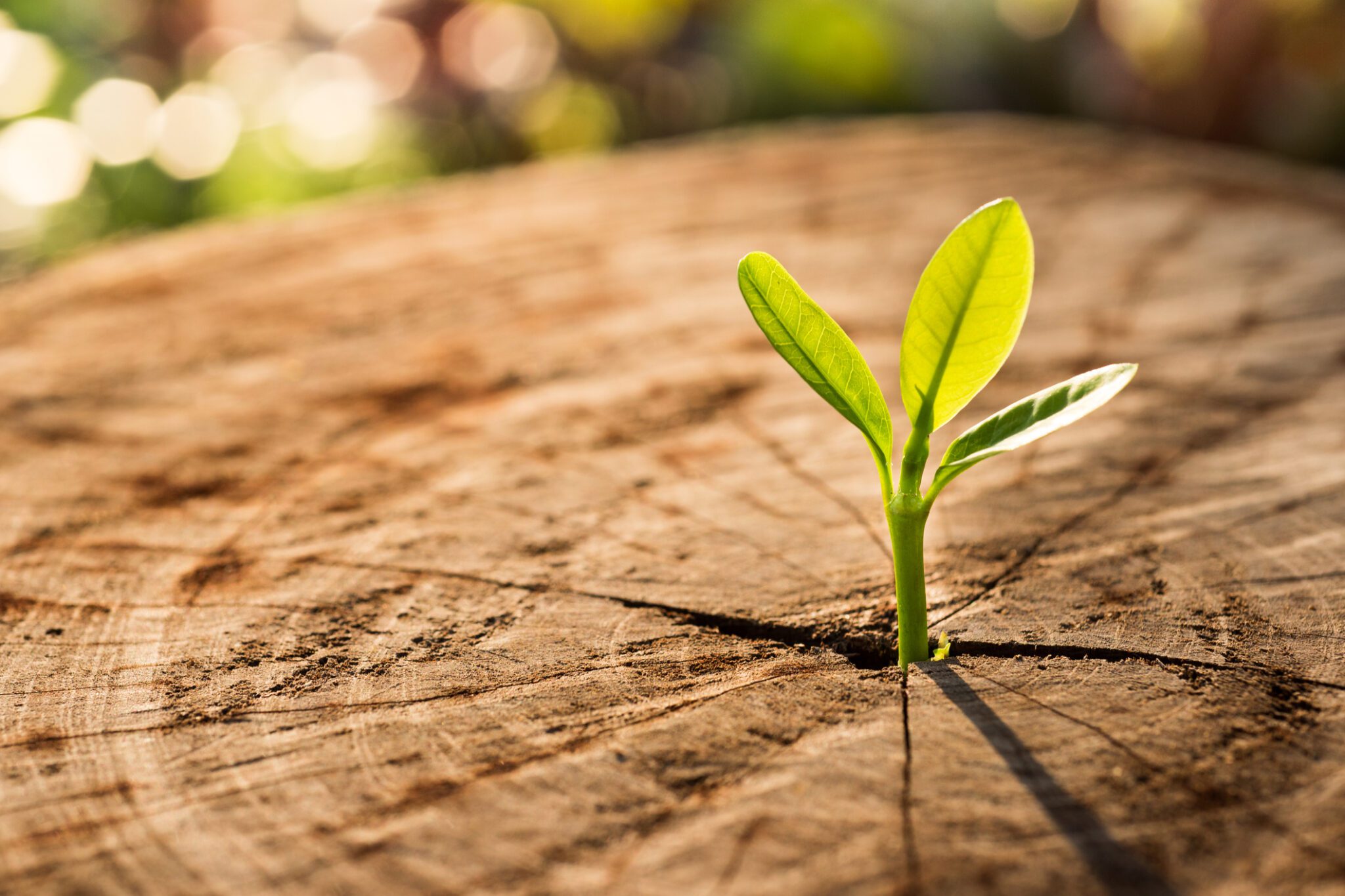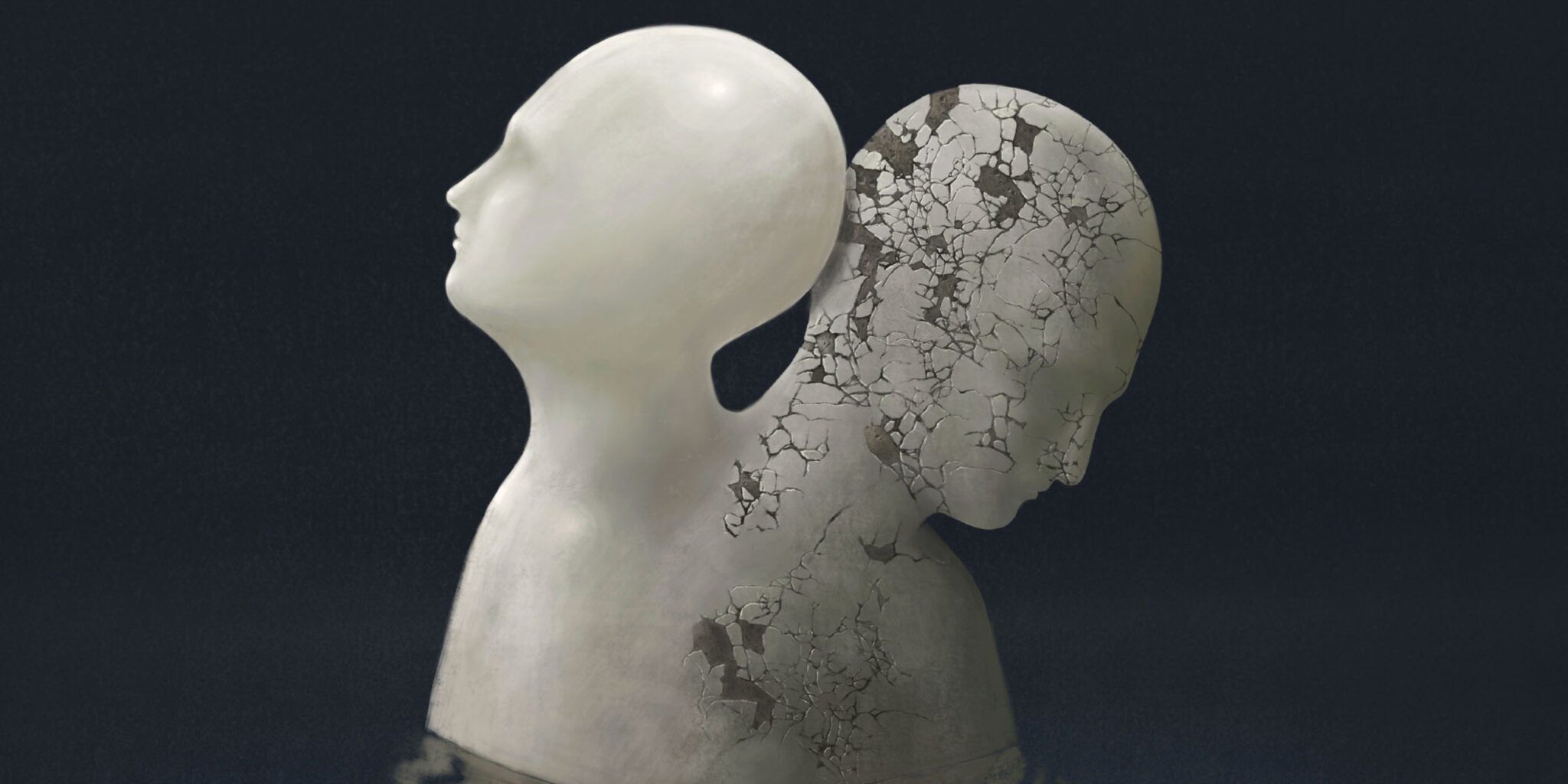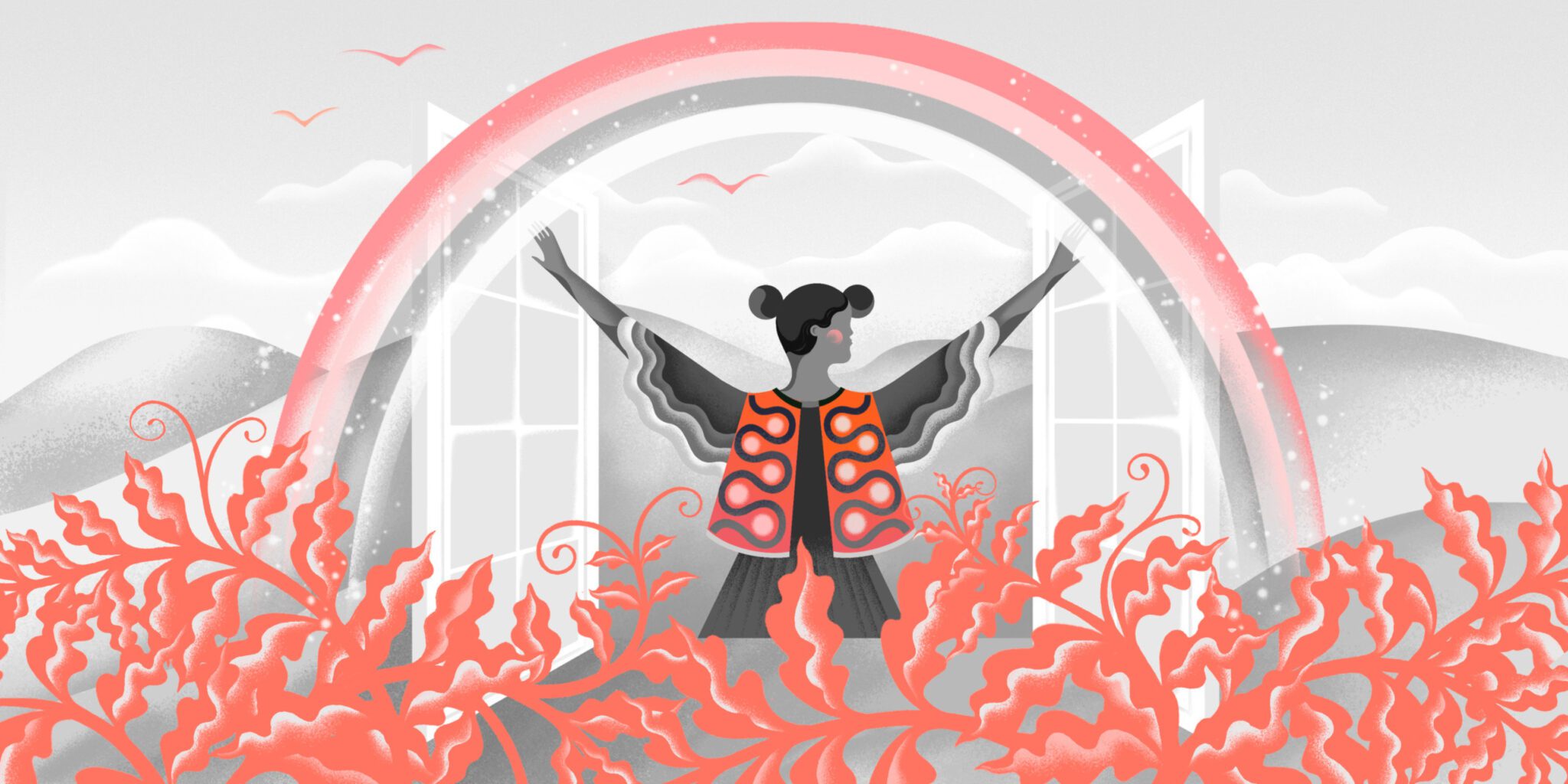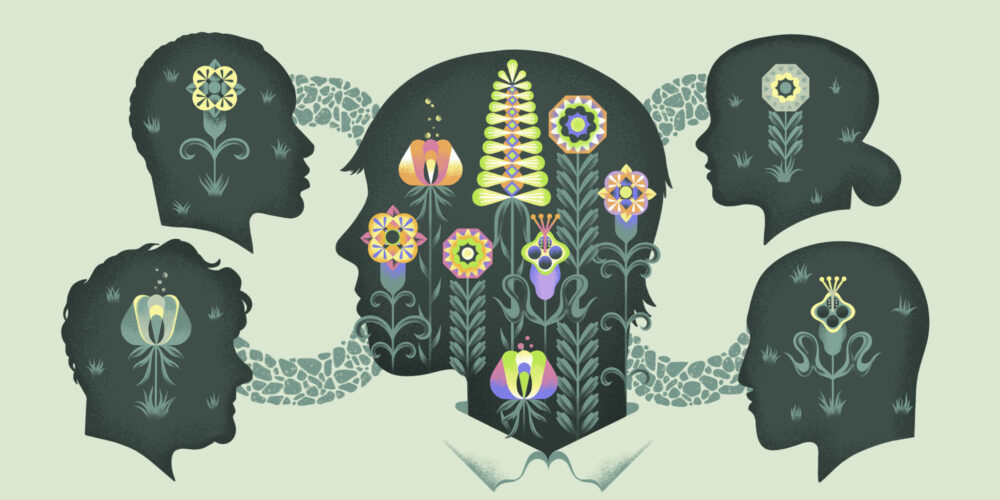Oh, what some would give for a second chance at life. To wipe the slate clean. To be seen by others, and as importantly, by oneself, anew – without the worst of our own bad decisions and wrongs done to us, and by us, no matter how long ago, looming over and taunting us. In this season of Easter and Ramadan, where literal and metaphorical references to rebirth and renewal abound, we speak with experts about forgiveness, redemption, and starting over. Your story isn’t fully written just yet. There is help. There is hope.
“With the new day comes new strength and new thoughts.”
— Eleanor Roosevelt
The Will and Way to New Beginnings
“If we’re willing to be responsible, we can wipe part of the slate clean, and hopefully by being responsible, the people that we’re responsible to will help us wipe that slate clean,” says psychologist Everett Worthington, who spent his career researching and writing on forgiveness, including self-forgiveness, and other virtues. In 1996, Worthington’s 76-year-old mother was murdered in her home in Knoxville, Tennessee. He had been interested in forgiveness before, but the event radically intensified his perspective.
“There are two components to everyday hope,” says Worthington referencing the work of clinical psychologist Charles Richard Snyder. There is Will Power – The person’s will to shape their future. And Way Power – The person’s ability to see ways to shape their future.
“Holding onto that sense that I can do something that matters. If we lose that willpower to change, we lose hope. But we can have all the willpower in the world and not know how to change or make things better. So, knowing pathways gives us ‘Way Power’ to change, and both ‘Will Power’ and ‘Way Power’ are necessary for change.”
"Every new beginning comes from some other beginning's end."
— Seneca
Hope for a Season, and Beyond
Spring, when the sun crosses the celestial equator- flowers bloom, birds chirp, the sun pours down warm rays – a new life cycle. “Easter is a season of resurrection. The resurrection of Jesus is the central event in our Christian faith,” says Bishop Kirk S. Smith, Interim President and Dean of Church Divinity School of the Pacific. “It is a message of tremendous hopefulness because it’s saying that whatever mess we may find ourselves in, including death worst of all, that’s not the end of the story.”
“We experience resurrections all the time in life in that we’re always given chances to do things. Every morning we begin again,” says Smith. “And we do that out of hopefulness because we know that even if we are in the midst of terrible things, that God has greater things in store for us than we can ask or imagine.”
He mentions medieval theologian Julian of Norwich, author of one of the great classics of spiritual life, The Revelations of Divine Love. She is known for her quote, “All shall be well, and all shall be well, and all manner of thing shall be well.”
“It’s not a Pollyanna hopefulness or mindless optimism. She doesn’t mean oh, don’t worry, be happy, everything’s going to be great,” says Smith. “It’s going to be well because of what God does in Christ and suffers for us…But it is definitely a hopeful vision, and it means I may be feeling pretty beaten down right now, but things always have that possibility of being better than they are right now, and so we can face the future with hope.”
The American Predilection to Reinvent Ourselves: For Worse, and for Better
American mythology is steeped in freedom, individuality, and reinvention. That we can channel our inner hero and escape a terrible situation such as poverty, a bad reputation, and injustice. Like a movie where the main character flees the East Coast under the cloak of night, disappears into the prairie and badlands, then pops up on the West Coast with a new name and a fistful of gold. Our sins and troubles left behind – vaporized, absolved, and forgotten. We are reborn. Victorious.
The phrase “pulling a geographic” is described as an illogical belief that moving to a
different location, be it an apartment, city, or country, will magically solve all your problems.
New friends, new town, new you?
“Finding a new situation actually can help us start over. For example, couples get locked into patterns and so finding a new way of acting, a new set of friends, going to a therapist, which is a new situation for most of them, all those things help them break free from the patterns,” says Worthington.
However, wherever you go, there you are. “We tend to optimistically think it’s going to be better just because we’re changing. It may not be…we don’t know that the situation for sure will be better. It’ll be different, that’s for sure…but it’s possible just to repeat the same struggles in a new place.”
“I have tried to keep on with my striving because this is the only hope I have of ever achieving anything worthwhile and lasting.”
— Arthur Ashe
Into Action: Overcoming Obstacles
Honestly assess your life, including your strengths, weaknesses, passions, and your own story and what it would mean to be the best version of yourself, including your personal life and career. Commit to an action plan, harness motivation, and tenacity. Be prepared for people not always liking that you’ve changed, even if it’s for the better. Life change isn’t a magic wand.
Dr. Jesse Owen, a professor of Counseling Psychology at the University of Denver, shares that people with addictions, such as alcoholics who’ve built their life around drinking and going to bars, might lose the friendships related to the addiction and be better off for it.
Another obstacle to a clean slate is the internet rarely forgets. Social media stalks you. “I can’t really control what everybody else does. I can only control what my response is to it and can’t even always control that,” says Worthington. “So, I have to think to myself that my response is to behave in a virtuous way that will honor people and not embroil me in some kind of slinging contest.”
Do the inner emotional work and use the tools to make and keep new habits so that your very same problems don’t pop up again.
"If you don't like something, change it. If you can't change it, change your attitude."
— Maya Angelou
More than Skin Deep: Help with Your Fresh Start
Physical makeovers can serve far more than vanity. For example, many private practice dentists, doctors, government agencies, and non-profits provide resources and free services to those in need, including victims of domestic violence to replace knocked out teeth, plastic surgery to remove scars from traumatic car accidents, and tattoo removal for former gang members.
The Clean Slate Initiative, whose taglines are “Everyone Deserves a Second Chance” and “Everyone Should Have a Shot At Redemption,” advocates for sealing conviction records and passing Clean Slate laws on the state level and in Congress.
Many lawmakers and organizations in California and beyond committed to expunging records, re-educating and retraining citizens, and restoring voting rights. Many news outlets, such as the Boston Globe’s “Fresh Start: Revisiting the Past for a Better Future” and Moving Forward program in Utah, now allow people to appeal their presence in older stories published on their website so that those articles can be removed.
World Religions: On Reflection, Repentance, Forgiveness, Redemption
There are troves of religious and spiritual wisdom on how to atone, prepare and experience second chances in life. Ramadan is a month-long period of fasting, spiritual reflection, and growth in the Islamic faith. Muslims believe the first ten days are filled with Divine mercy, the second ten with forgiveness, and the final ten on the liberation of the soul. According to the Prophet Muhammad, the one whose Ramadan is accepted by God emerges “free from sin, [just as pure] as the day his mother bore him.” Muslims thus end the month with a mixture of emotions: sadness at Ramadan’s departure, hopeful for Divine gifts, and filled with joy on the day of Eid—the first day of the rest of their new life.
The Christian tradition of Lent, spanning forty days and culminating in Easter, also emphasizes fasting and reflection. Importantly, “Redemption is also a central theological concept because…God never gives up on redeeming us. God never gives up on us,” says Smith. “God is always taking the neglected, the rejected, the seemingly broken and turning it into something wonderful. And that’s what he does with us…In a sense, God asks us, in turn, to do that with those around us and those situations around us that seem hopeless or broken or beyond repair and make something great out of it.”
"Resentment is like drinking poison and then hoping it will kill your enemies."
— Nelson Mandela
How To Seek Forgiveness, Forgive Others, and Forgive Yourself
How do we free ourselves from being held hostage to the resentment, bitterness, remorse, rage, and other mindsets that can destroy any possibility of a fresh start?
“Both forgiveness and self-forgiveness can be vital,” says Worthington of the powerful, time-tested, multi-faceted tool of forgiveness. “If I’ve done things that I regret…if I disappoint myself and don’t meet my expectations, dealing with that regret and being able to responsibly self-forgive is going to take away a lot of the background negativity. Of course, if someone has hurt me, I don’t want to continue in that bitterness and resentment toward them, so I will need to pursue forgiving them or dealing with it in some other way. Forgiving others and forgiving yourself can make the slate a lot cleaner.” A wealth of research shows the value—including health benefits—of forgiveness, and there are well-tested methods to help guide your journey.
We rarely forget when we were wronged, but do we keep track of, or even remember, the harm we have caused others? One method that helps couples move forward is the CONFESS model: Confessing without excuse or blaming the other person, Offering an apology with sincere remorse, Noting the person’s pain and being empathetic, Forever valuing the other person, Equalize – meaning making restitution and amends (if that’s not possible, paying it forward), Say never again to harming that person the way you did, and Seeking forgiveness by directly asking for it, understanding the other person might not be there just yet.
With the humility that comes from knowing that we ourselves transgress in many ways, we can also begin the process of forgiving others. Empathizing, giving forgiveness as an altruistic gift, and committing to forgiveness can all be part of the process.
Forgiveness is not synonymous with letting people off the hook or reconciliation. “Forgiveness is internal, but justice is social and societal,” says Worthington. “If people have a lot of rage, they can still forgive but be motivated to pursue social justice or criminal or civil justice to the extent of their ability without having all the hostility and bitterness associated with it.”
Research shows that female victims, in particular, ought not be persuaded to forgive for the sake of either reforming the perpetrator or healing themselves. Some advocate harnessing rage to motivate productive action and positive change.
We can be our harshest critics, ruminating and punishing ourselves relentlessly. A dual-process model of self-forgiveness is more reparative than self-shaming and is (a) a reorientation toward positive values and (b) a restoration of personal esteem.
A new day filled with grace, reflection, hope, action, forgiveness, and the help of others can overcome the challenges of our past and transmute them for good. It is a gift beyond the season of spring, the chance to begin again at any moment, at any age – fresh and clean.




